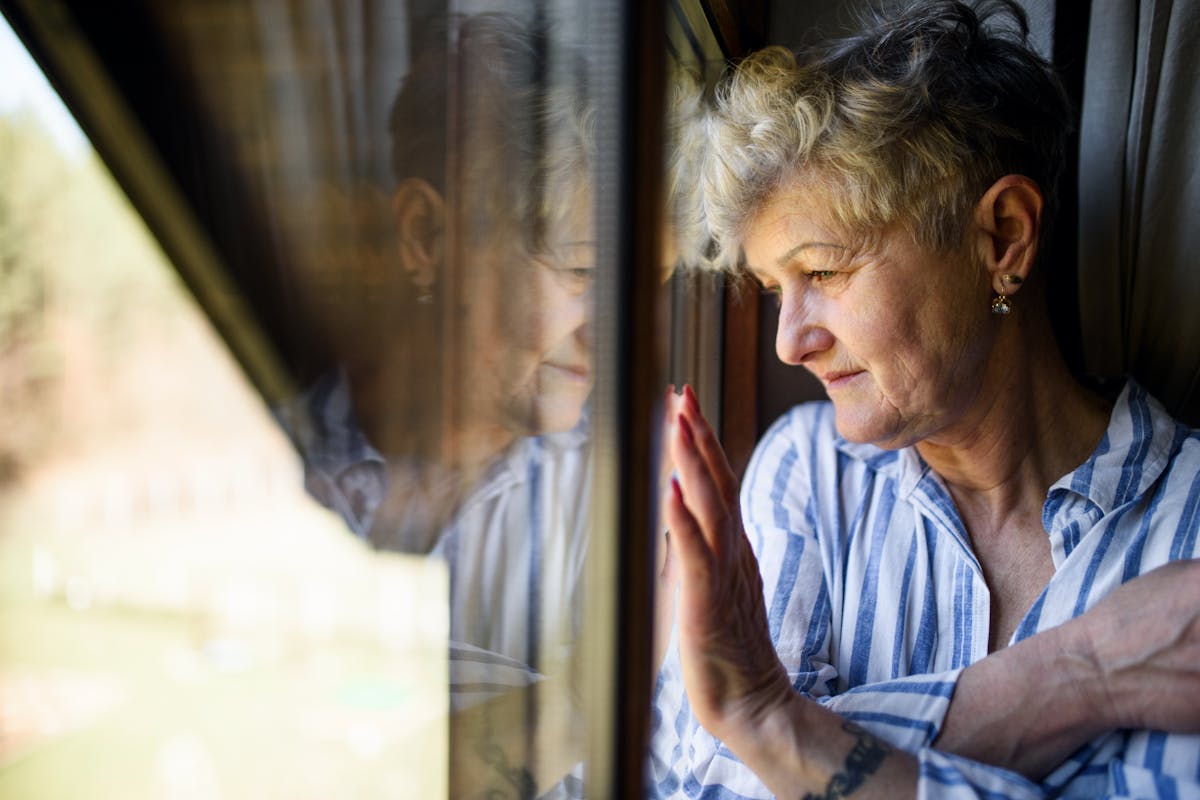What Is Senior Isolation and How Is It Dangerous?

During the COVID-19 pandemic, most people spent the majority of their time alone or with members of their immediate family. As the crisis wore on, we saw the media begin to spotlight loneliness and the health hazards associated with it. For older adults living alone, however, isolation was identified as a health risk years ago.
Why are older adults more likely to experience isolation than younger people? Seniors might become isolated for a variety of reasons. Some of the most common are:
- Living alone
- Lack of transportation
- Struggles with mobility
- Loss of friendships and family members
- Chronic health condition
- Vision or hearing loss
Health Issues Linked to Senior Isolation
While it’s easy to understand why isolated seniors are more likely to develop depression, it’s not the only health problem to be concerned about. An older adult who is experiencing isolation is often at increased risk of other conditions, including:
- High blood pressure
- Type 2 diabetes
- Heart disease
- Stroke
- Weight gain
- Cognitive decline
Research also seems to indicate that older adults who are isolated are more likely to die prematurely.
If you or a senior loved one is spending much of your time alone, it’s important to find ways to reengage with others, even if you can only do so virtually. These suggestions might make that easier to do.
Ideas to Help Isolated Seniors Connect with the Community
- Join a senior organization
Most cities have a wide variety of senior organizations. Some of them even offer transportation services for older adults who have given up driving.
One to consider is your local senior center. Most offer free or low-cost events and activities, such as chair yoga, musical entertainment, art classes, card groups, movie nights, and more. Many also serve a hot lunch for a nominal fee. Use this Senior Center Directory to find a location near you or your older family member.
Other senior groups to explore could be those at your church or synagogue, wellness programs at a local YMCA or fitness center, and retiree groups from your former employer.
- Explore transportation services
If a lack of transportation is what’s causing you or a senior loved one to be isolated, it may be time to learn more about local transportation services. While ride-share services, like Uber and Lyft, are available in most communities, not all older adults are comfortable using them. Fortunately, most cities and rural communities have other options for seniors. The best way to learn more is to call your nearest agency on aging. Ask if they maintain a list of transportation options for older adults. You will probably discover that they have programs and partnerships, including volunteers, that are reliable and reasonably priced.
- Connect via video chat
When you can’t be with friends and family in person as much as you’d like, video chat services are the next best thing. They offer an opportunity for near face-to-face conversations. Skype, Zoom, and FaceTime are all easy to use and have free versions. They make it easier to chat with loved ones from your favorite spot on the couch.
Another way to stay engaged via video chat is to use it for volunteer work. Call local nonprofits or the United Way to see if they know of any opportunities. If they don’t, websites like Points of Light or Volunteer Match allow you to search for virtual volunteer projects.
- Consider moving to a senior living community
Another option to help prevent isolation during retirement years is to move to a senior living community. In addition to providing opportunities to meet neighbors and rebuild your social circle, these communities offer activities and programs throughout the day and evening. They also have transportation services for residents to enjoy outings to popular local destinations, as well as for medical appointments and other necessities.
Consider a Mobile Monitoring Unit
Another suggestion for seniors who live alone is to invest in a mobile monitoring unit. It can bring peace of mind to the older adult and their loved ones. In the event of an emergency when you are alone, help can be summoned with the push of a button. Call 1-844-203-5617 to learn more!